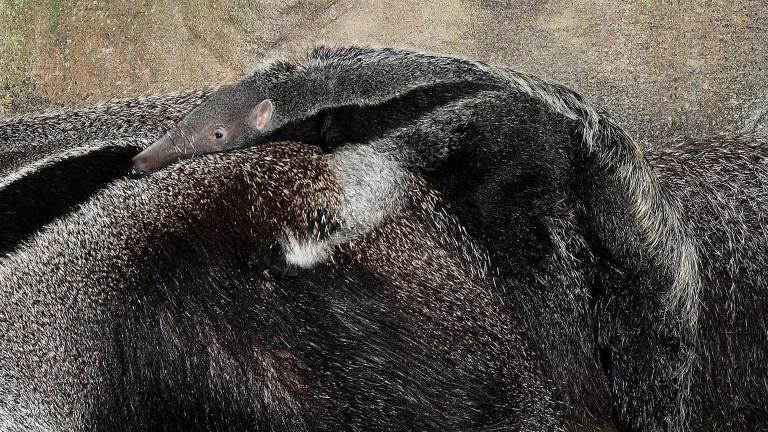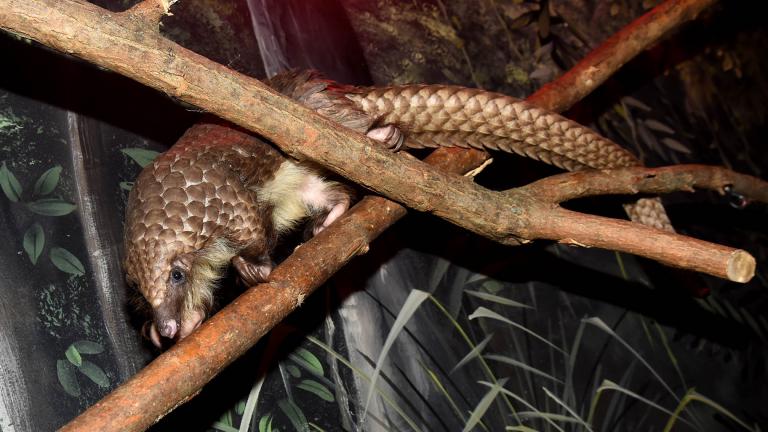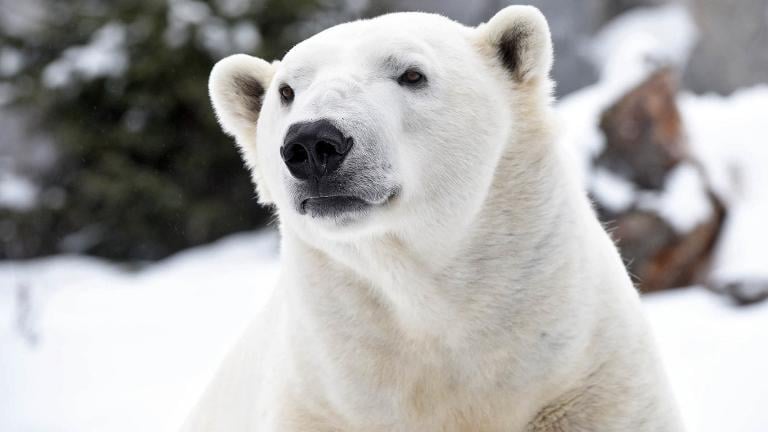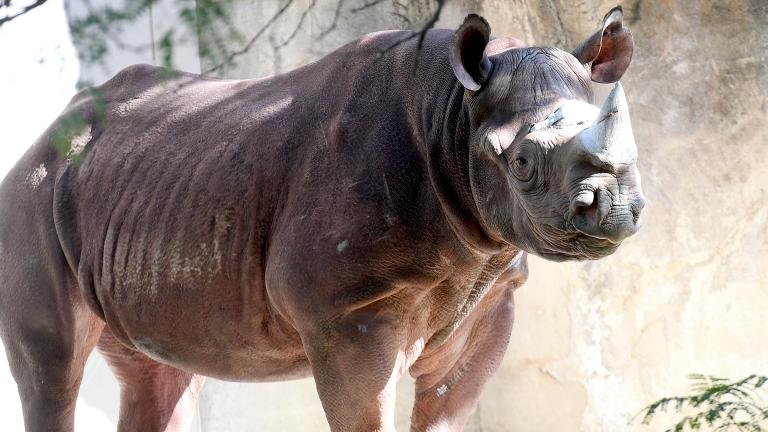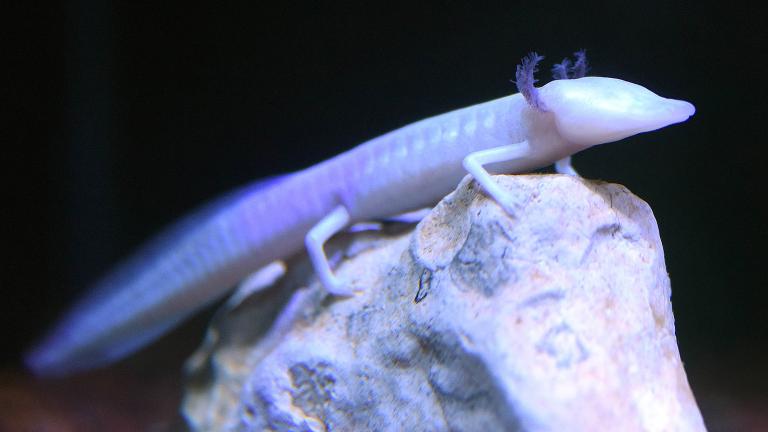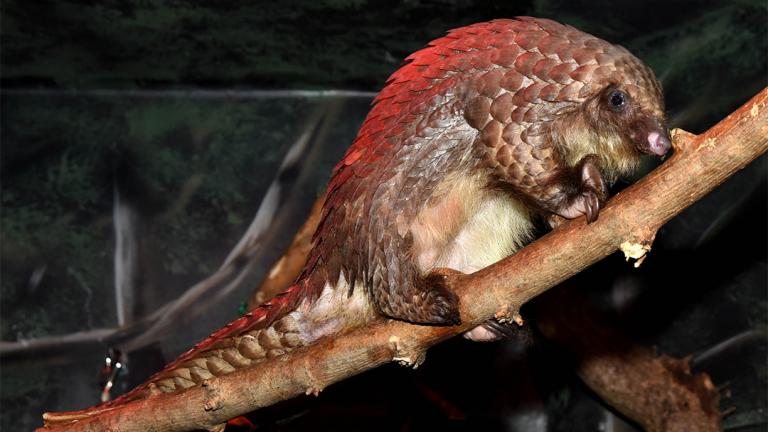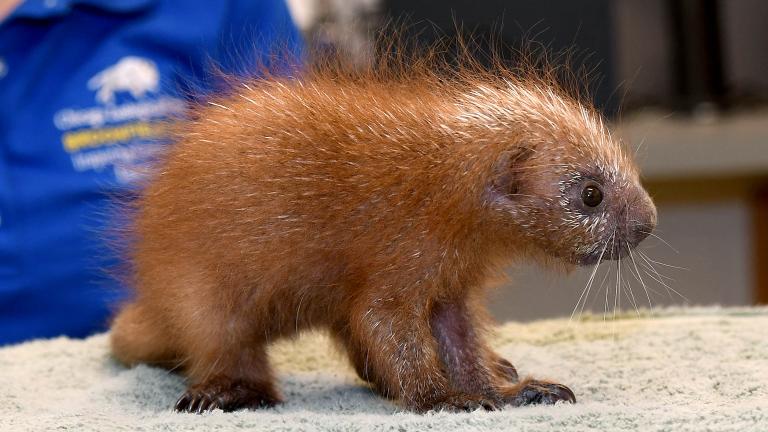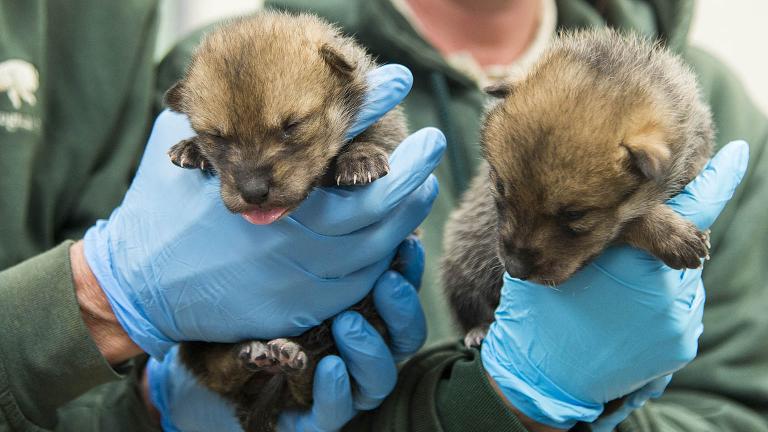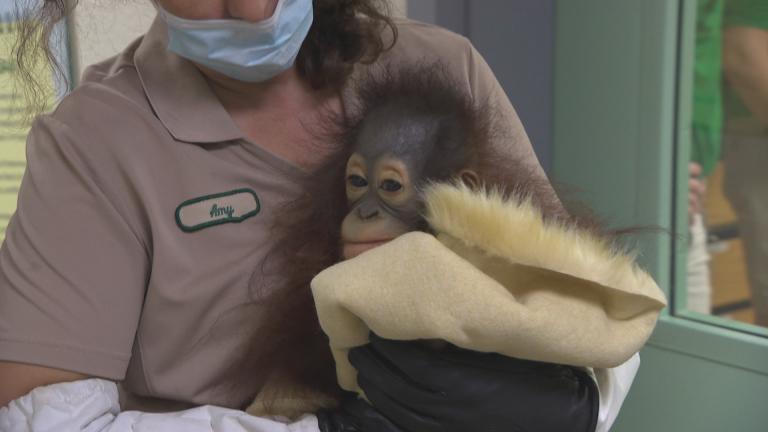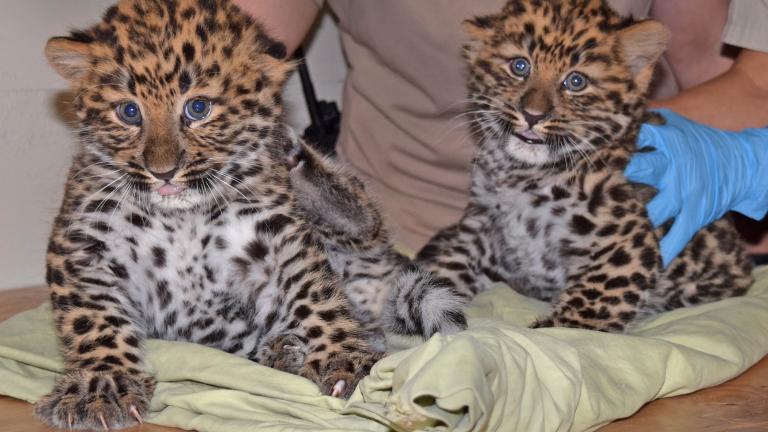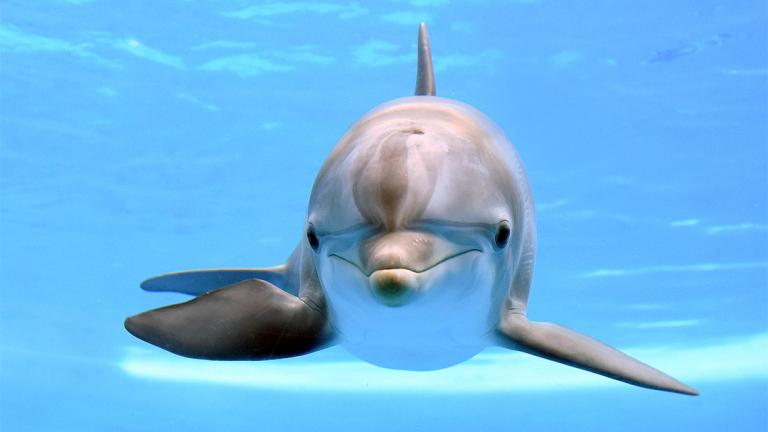The unnamed pup, born Dec. 15, can be seen alongside his mom on select days in the zoo’s “Tropic World: Africa” exhibit.
Brookfield Zoo
The tiny African antelope born on Valentine’s Day was euthanized Tuesday, according to zoo officials, who identified a birth defect that affected the animal’s ability to swallow normally.
Researchers estimate that more than one million pangolins have been taken from the wild over the past decade as demand has soared for their meat and scales. What one local institution is doing to save these scaly anteaters.
A tiny African antelope that belongs to one of the smallest species of its kind in the world received a name befitting his Feb. 14 birthday.
Unlike the industry serving health-conscious humans, there are no books, infomercials or 12-week programs to help dolphins optimize their diets. But there is an app for that, thanks to new research by animal welfare specialists.
Brookfield Zoo and Lincoln Park Zoo plan to close for parts of the week as record-breaking lows are expected to move into the area.
Zoo officials say they’re hopeful that 2-year-old Ela and newcomer Apache, 7, will have a successful breeding season this winter and produce a litter of wolf pups in the spring.
They are one of the most successful packs within the nationwide Mexican Wolf Recovery Program, but nine of the 10 wolves will leave Chicago for new homes as part of a plan to help save the endangered species.
The 2,300-pound rhinoceros, Layla, logged an important milestone this week, celebrating her eighth birthday just months after overcoming a near-deadly infection.
The completely blind amphibians, found in Texas, are a translucent white color with bright red gills. Brookfield Zoo is one of just three North American institutions to host the rare creatures.
More than a million pangolins have been poached from the wild in the past 10-15 years, according to Brookfield Zoo. What conservationists are doing to change that.
A porcupette, or baby porcupine, was born last month at Brookfield Zoo and is being hand-reared by the zoo’s animal care and veterinary staff.
Their recovery has been a national concern for decades. What’s happening locally in the effort to save the Mexican wolf.
Orangutans are one of humankind’s closest cousins. We meet a baby orangutan as she takes a trip to the doctor.
Brookfield Zoo welcomed two newborn Amur leopards in April. The male cubs are scheduled to make their public debut in mid-July.
Maxine, a bottlenose dolphin at Brookfield Zoo, died June 2 after suffering an acute bacterial infection, the zoo announced Tuesday.

